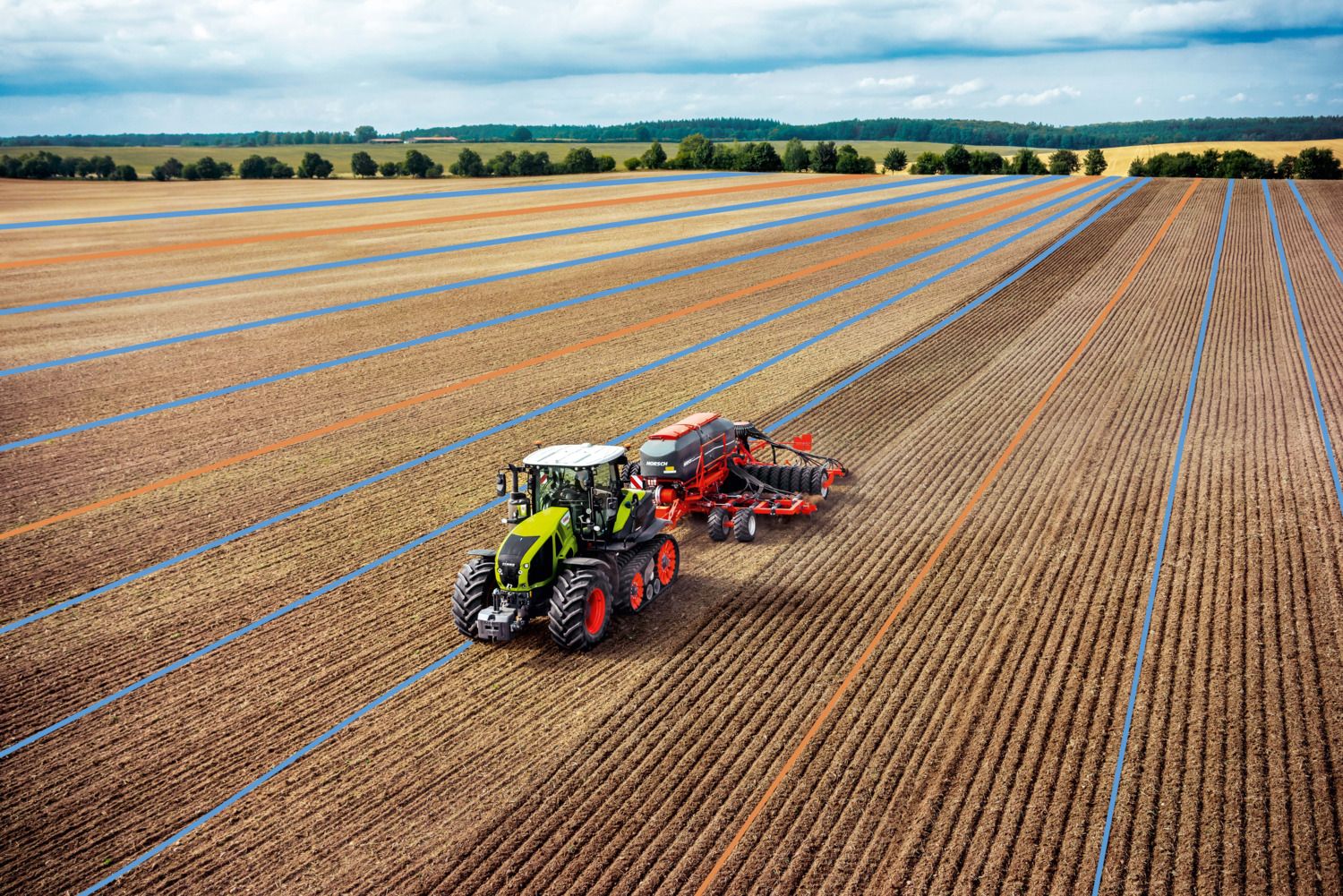One yr after the worldwide launch of the Claas join, Claas is additional increasing the digital networking of machines and operations.
At Agritechnica, guests to the Claas stand in Corridor 13 is not going to solely be capable to discover out extra about new and current potentialities for simplifying working processes with Claas join, however may even achieve insights into expertise fields equivalent to algorithm-based information analysis, reside yield information processing and autonomy.
As in 2023, the Claas join info space will occupy a central place on the Claas stand.
“Additional rising productiveness whereas on the similar time conserving assets is just doable by way of the clever use of information,” says Wolf-Christian von Wendorff, senior vice chairman world digital options. “As a way to present our clients with the absolute best, future-oriented assist, we’re focussing on the automation of processes on the store ground, information evaluation utilizing synthetic intelligence and options for autonomy. These applied sciences considerably simplify machine and order administration in addition to Precision Farming functions. Claas join is subsequently a digital helper for each farmer – from small household farms to giant contractors, from digital freshmen to professionals.”

Because the roll-out in October 2024, additional Claas machines have been constantly built-in into Claas join – together with the brand new Arion 570 CMatic, mix harvester improvements such because the Trion 760 and Lexion 8500, the brand new Cerex 700 spherical baler sequence and, most lately, the brand new Jaguar 1000 forage harvester sequence.
With the Cemis 1200 on the Jaguar 1000, necessary information equivalent to reference tracks and jobs could be conveniently shared. Jobs, together with current or newly created reference tracks, could be deliberate upfront in Claas join and transferred to the machine. Throughout harvesting, the operator can see the yield values reside on the Cemis 1200. The connectivity additionally allows computerized documentation of the work, in order that the operator can focus absolutely on the harvesting course of, whereas all related information is reliably recorded within the background for monitoring and evaluation.
The AI-supported grain processing evaluation in Claas join with cloud-based analysis of the CSPS worth (Corn Silage Processing Rating) within the subject can be obtainable for the Jaguar 1000 as a novel, direct management possibility for cracker work with out lack of time and, if crucial, fast optimisation of the cracker setting.
Claas join can report all actions carried out by machines on the farm and combines them right into a subject map. Linked machines mechanically ship the exercise information per subject, and along side the Cemis 1200, Claas join now additionally affords computerized documentation for implements. Enriched with necessary info throughout subsequent processing, this leads to a whole subject map that replaces the written documentation of labor. Claas join additionally makes it a lot simpler to fulfil the legally required documentation obligations.
Claas is embedding new applied sciences on the machines and new information evaluation choices in Claas join, notably within the space of yield evaluation. In future, yields could be displayed reside from the Cemis 1200 terminal as with the Jaguar 1000 from 2026.
With the brand new ISOBUS-capable Nutrimeter on the Jaguar 1000, Jaguar 900 and Jaguar 800, clients will obtain high-quality info on all substances of the forage harvest in Claas join as a map show and within the field-specific documentation. With only one click on, this information could be made obtainable to clients and farmers as a pdf instantly after the sphere work has been accomplished.
The brand new Nutrimeter may even be obtainable for the primary time in 2026 as a pre-series for the LEXION to report and doc substances throughout grain harvest – a precious assist for the sustainable, resource-saving manufacturing of high quality grain with optimised use of fertilisers and seeds.
Sooner or later, prolonged yield reporting for harvesting equipment may even permit a variety-dependent yield analysis with comparability choices over a number of harvest years – not just for Claas harvesting equipment, but in addition throughout producers.
Claas applied sciences on the machine and in Claas Join make it doable to mix the exploitation of yield potential with focused effectivity optimisation and improve the profitability of meals, high quality feed and renewable uncooked materials manufacturing much more exactly and comprehensively.
From 2026, Claas can be introducing reside yield mapping on the Cemis 1200 terminal with the brand new ISOBUS-capable Nutrimeter and the choice to analyse information in Claas join – for Jaguar and Lexion.

Auto RefLine is a brand new operate within the GPS Pilot Cemis 1200 that makes subject work simpler. It mechanically recognises the suitable or logical reference observe primarily based on the place and course of journey of the car and mechanically switches between completely different reference tracks. This implies, for instance, that the operator doesn’t have to change manually when altering to headland reference tracks or when figuring out wedges with a distinct reference observe. All machines in a Claas join car fleet can share the reference strains straight from one of many machines with just some clicks. Which means each operator is on the identical observe directly.
Auto RefLine is a brand new operate within the Cemis 1200 that mechanically switches between completely different reference tracks throughout subject work – for instance when working wedges or headlands. The reference strains could be transferred and shared from one Claas machine to others working in the identical subject.
Trackers from Exatrak, Lacos or Razor are nonetheless obtainable for the documentation of blended fleets. Sooner or later, fleet optimisation may even be doable by way of iBeacon from Apple. As well as, interfaces (APIs) to different software program suppliers could be simply managed within the Connection Supervisor. The continual improvement of the software program interfaces will make CLAAS join much more open to third-party options sooner or later.
For that reason, Claas helps the Agricultural Interoperability Community (AgIN) of the Agricultural Trade Electronics Basis (AEF). This initiative allows the direct change of information between farm administration programs, OEM platforms and different cloud companies. By persistently taking open requirements into consideration, cross-manufacturer compatibility is created and a scalable community is established to assist sustainable, customer-centred options for the administration and documentation of blended machine fleets and software program landscapes.
As a participant within the AEF AgIN community, Claas helps the sensible additional improvement of the AEF’s AgIN method and, along with different AgIN contributors, can be demonstrating an preliminary prototype implementation in Claas join at Agritechnica.
The AgIN initiative of the AEF (Agricultural Trade Electronics Basis) is setting new requirements for digitalisation in agriculture by standardising cross-manufacturer, direct cloud-to-cloud information change and thus simplifying interoperability between completely different producers and software program suppliers.
“For farmers, it ought to make no distinction whether or not the machine fleet consists of 1 model or a number of completely different producers,” says Lukas Wolf, venture supervisor connectivity. “We’re subsequently very dedicated to supporting the AEF’s AgIN initiative, because it brings collectively all of the necessary producers inside the agricultural equipment business and promotes barrier-free information change for sensible farming functions, in addition to for future autonomous functions.”
Photographs: Claas


